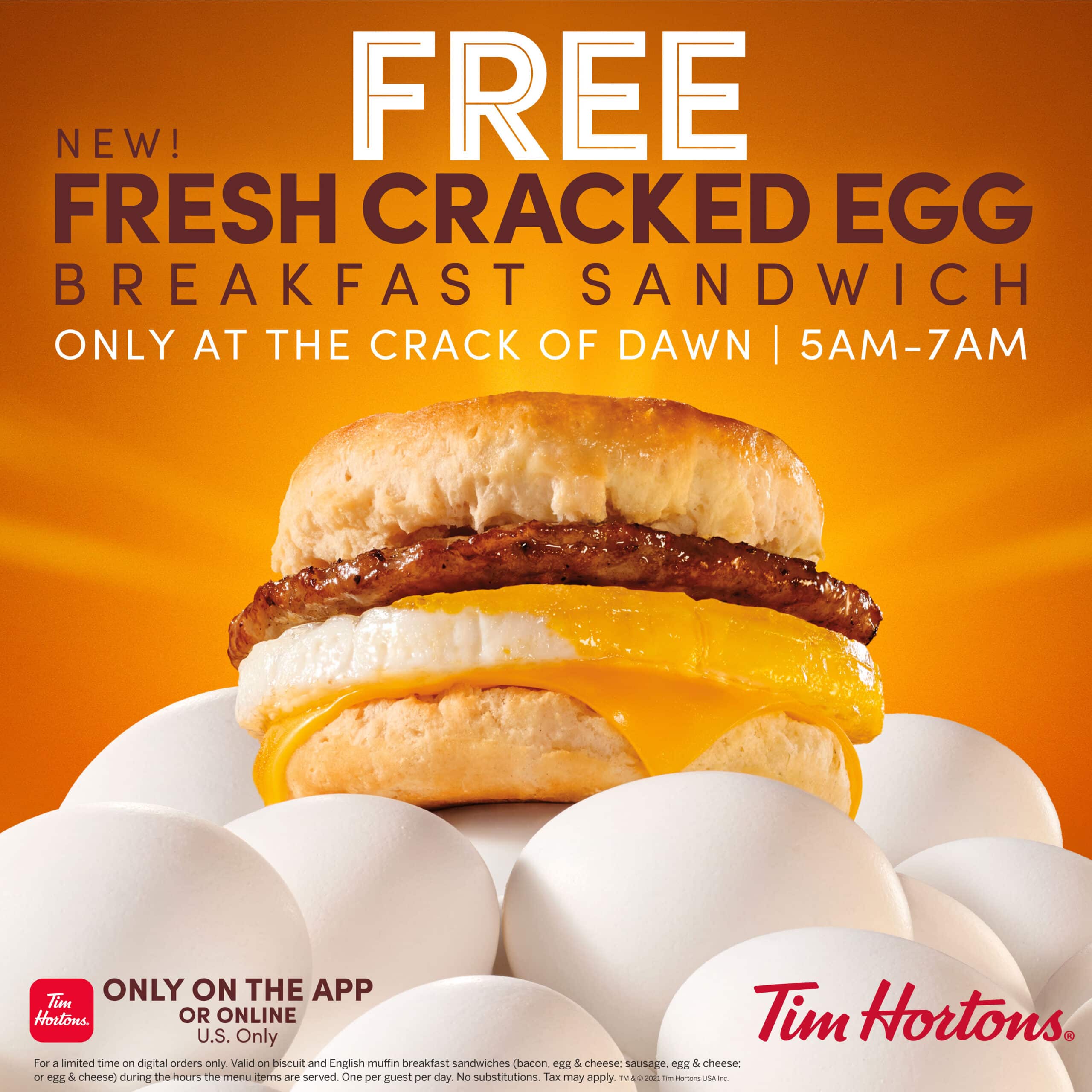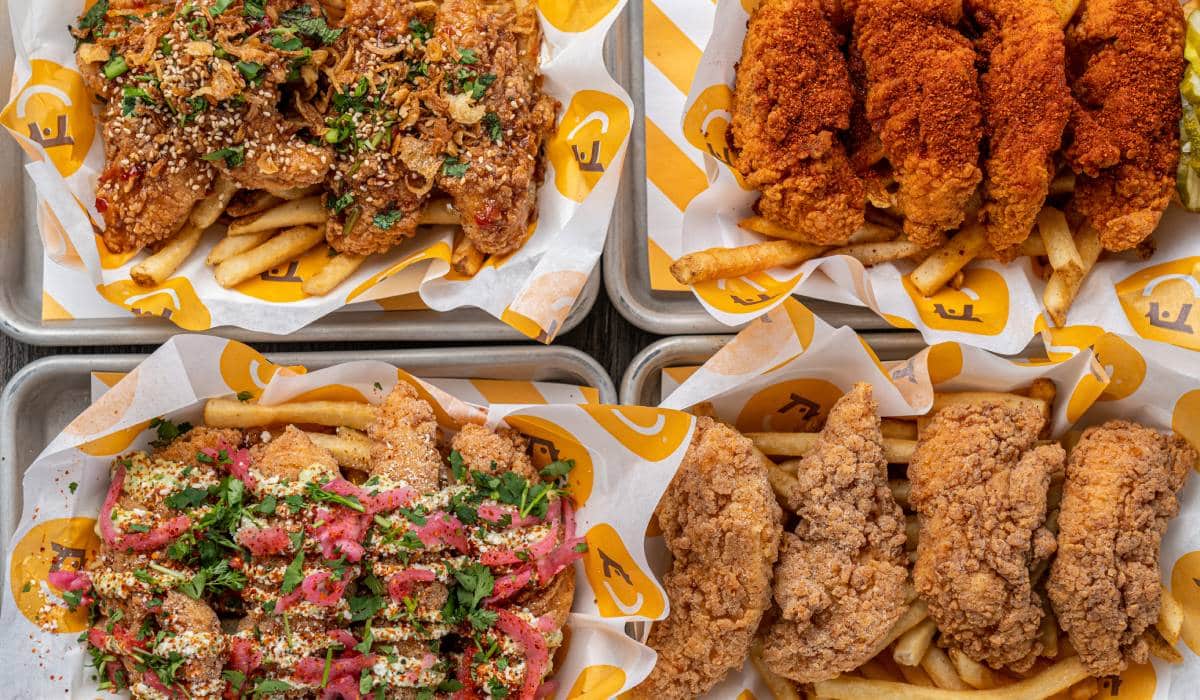There’s rising sales, and then there’s eye-popping, explosive growth—Starbird Chicken fits into the latter.
The emerging nine-unit chain saw same-store sales skyrocket 36 percent year-over-year through the first half of 2021 and increase 75 percent compared to two years ago. That’s been the story since the pandemic first arrived. In 2020, Starbird experienced a 36 percent uptick in systemwide revenue year-over-year and “industry-leading” sales per square foot.
The red-hot pace has put the California-based brand in a position to do something it has never done before—a nationwide franchising program, set to kick off within the first three months of 2022. To grow the initiative, Starbird is partnering with Pivotal Growth Partners, which has previously assisted the likes of A&W Restaurants, Baskin-Robbins, Big Boy Restaurants, Dunkin’, Long John Silver’s, Marco’s Pizza, and Yum! Brands. One of Pivotal’s current clients, Jeremiah’s Italian Ice, landed in QSR’s 2021 40/40 List and is projected to open 35 locations in 2021.
Starbird founder and CEO Aaron Noveshen says the company will look for potential operators that exhibit similar values, passion, ambition, and dedication to positivity.
“I think it’s a combination of having the systems and clear brand vision in place,” says the CEO, explaining why now is the right time to franchise. “Having the unit economics that are attractive to create a win-win scenario between franchisees and the company. And I would say just the overarching momentum that is driving sales and recognition for the brand. It’s ready to emerge on a national scale.”
READ MORE: Starbird Chicken Achieves Major Growth in First Half of 2021
The chicken brand’s diverse footprint features five streetside stores, two ghost kitchens, and locations in San Francisco International Airport and Levi’s Stadium—all based in the surrounding Bay Area. The growth strategy moving forward is to build more brick-and-mortar units not only in Northern California, but also Southern California. Noveshen says the first brick-and-mortar SoCal store is scheduled to debut in early 2022.
In addition, Starbird will construct ghost kitchens in clusters to meet demand and fill spaces between brick-and-mortar locations. Another ghost kitchen is expected to open in Southern California later this year. The chicken brand plans to have 11 stores open to finish 2021 and 16 to 20 by the end of 2022.
The company is supporting new store growth opportunities by raising an equity round. To date, Starbird has gathered $10 million and carries negligible debt.
“I think that what we’re hearing from our investors is that Starbird is really the definition of a modern restaurant company and is able to drive superior unit level economics and have a scalability plan that is not matched by many other companies,” Noveshen says. “ … We’re literally right in the middle of fundraising as we speak today, and we’re seeking the right institutional partner to join us in our next stage of growth.”
[image source_ID=”127636″]
Along with revenue growth and sales per square foot, Noveshen says lead investors are most attracted to Starbird’s omni-channel model, or the ability to fulfill customers’ needs whether it’s through web/app, delivery, or on-premises dining.
Starbird’s sales trends have proven just how important that model has become. The chain’s ghost kitchens grew substantially throughout 2020 as Bay Area guests were restricted to off-premises more so than most of the country. Even as restaurants have reopened in 2021 and more options have come online, the chicken chain has held onto those sales for the most part. With the traditional streetside restaurants, the sales expansion has continued week over week, month over month, and quarter over quarter.
“The marketing has been huge, and the digital, which allows for frictionless experiences with our guests, is really a key to that component,” Noveshen says.
The digital ordering experience is what keeps customers. What draws them in, according to Noveshen, is a variety of product innovation and relevant food that no one else can provide. Starbird gives itself a lot of room for culinary creativity with a menu that includes tenders, sandwiches, tacos, wings, salads, and several house-made dipping sauces.
Starbird’s latest innovation is Thai-style chicken products covered in a hot, sweet, and sticky glaze and served with a spicy Thai herb aioli dipping sauce. The chain also created a green papaya slaw for its tender boxes, which Noveshen describes as “pretty cutting edge.” In the coming weeks the chain will launch a California menu highlighting Cali-style chicken tenders with spicy avocado, crema, cojita cheese, and pickled red onions. Additionally, restaurants will bake their own Dutch crunch bread for a Double Dutch Crunch Chicken Sandwich, and offer a California Roll Salad with avocado and wasabi vinaigrette.
The brand’s innovation is backed by the Culinary Edge, Noveshen’s global consultancy business based in San Francisco. Starbird leveraged the company’s resources to continue menu innovation despite the global pandemic.
“We never stopped innovating in the background, and then we did not suffer sales declines,” the CEO says. “That continued innovation and relevancy and ease and frictionless experience for our guests, it really, really helped us out.”
READ MORE: Starbird Shines the Spotlight on Chicken
The choice don’t end there, however. To maximize sales through off-premises channels, the chicken company has launched four virtual concepts—Starbird Wings, Starbird Salads, Starbird Bowls, and plant-based brand Gardenbird. The digital entities accounted for 16 percent of companywide sales in Q2. Noveshen says the virtual concepts have contributed a double-digit mix in brick-and-mortar stores and a more than 50 percent mix in ghost kitchens.
More virtual brands could be on the way as Starbird tests different ideas. How will those virtual concepts fit into future unit development plans? Noveshen says it’s a matter of balancing sales and complexity.
“As long as we can drive the sales and manage complexity, we envision certainly all company stores and company restaurants to have the virtual brands,” he says. “We don’t know yet what that will mean on the franchise front. Likely there will be a way to earn the rights maybe to be able to launch the virtual brands. We want to make sure that the core is taken care of first.”

Simply put, much excitement surrounds Starbird, but that appears to be the case for the chicken category overall. Several small –to mid-sized chains have doubled down on franchising as of late, such as Huey Magoo’s, El Pollo Loco, Wing It On! and Dave’s Hot Chicken. Others have bolstered their chicken game through virtual brands, particularly on the full-service side with Chili’s and Applebee’s.
Noveshen isn’t surprised by the growth. Chicken is considered healthier compared to other proteins, it can be grown relatively quickly, and it’s usually a stable product. Recently the chicken market has become volatile because of increased demand and labor shortages, but the CEO says Starbird has mitigated issues and prevented bottom line erosion with menu engineering, innovation, and sales growth.
In terms of labor shortages at the store level, Noveshen says Starbird is about investing in people and attracting the best talent. Every single meeting starts with questions like, “How are people doing,” “Where do they need support,” and “are they feeling healthy.” The chain utilizes two major employee benefits—the Starbird Education Fund and the Language Learning Program. As part of the Educational Fund, the company contributes tuition reimbursements of $100,000 a year and up to $5,000 per employee per year (up to $20,000 over a period of four years) towards higher education. And with the language program, Starbird partners with language learning system Babble to offer free online memberships.
That’s only a portion of how Starbird intends to separate itself in such a crowded category. Noveshen explains that his company has love for all the different ways chicken can be eaten, whether it’s grilled, crispy on a salad, in a taco or sandwich, or in the form of a tender for dipping. The broad-based approach is Starbird’s competitive advantage, the CEO notes.
“It’s a relentless pursuit of deliciousness is the way we think about it,” Noveshen says. “And our culinary quality and craveability is untouchable and defensible. That combined with leading-edge technology and a digital platform allows us to build and sustain sales in a way that other competitors likely won’t be able to keep up with in the chicken space.”







